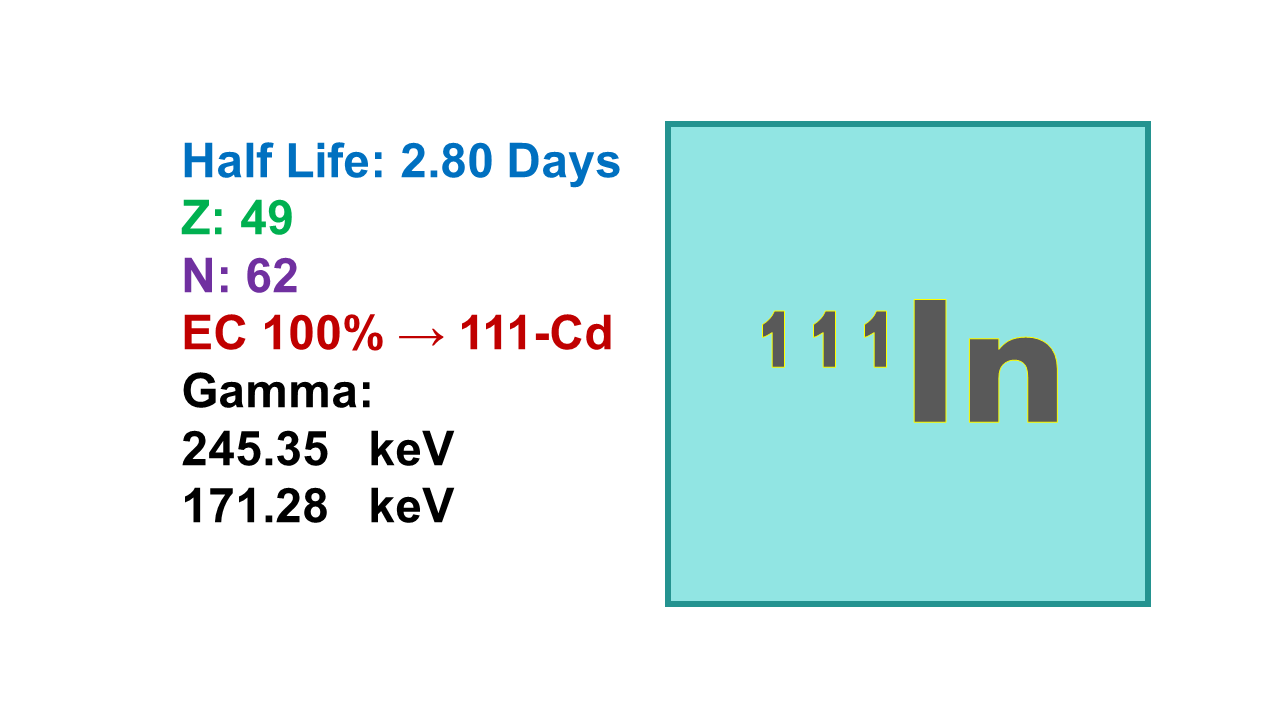
111In-Indium Chloride
September 7, 2024
111In-Indium Chloride is a high-purity, pharmaceutical-grade reagent essential for the radiolabeling of specific antibodies, such as Prostascint or Zevalin, which are used in diagnostic imaging and targeted therapy. This compound plays a crucial role in the preparation of these antibodies by enabling them to be tagged with the radioactive isotope Indium-111, allowing for precise imaging of certain medical conditions. However, it is important to note that 111In-Indium Chloride itself is not intended for use directly as an imaging agent. Instead, its primary function is as a precursor in the labeling process, which facilitates the subsequent use of the radiolabeled antibodies in medical procedures.
Description
111In-Indium Chloride is a pharmaceutical-grade reagent needed to label antibodies such as Prostascint or Zevalin. It is not for use directly as an imaging agent.
Clinical applications
111In-Indium Chloride is needed as a reagent to produce the final preparation of radiolabeled antibodies (Prostascint, Zevalin). This reagent is also useful for the labeling of platelets (thrombus imaging) and leukocytes (Infection/inflammation imaging).
Availability and price
111In-Indium Chloride is available under different brand names: Indiclor® (GE Healthcare), IN111-Chloride (Mallinckrodt, Curium).
Note that several manufacturers produce non-pharmaceutical grade 111In-Indium Chloride (indium trichloride) for research purposes that cannot be used for labeling of clinical tracers (Sigma Aldrich).
In the US, an imaging dose of 6 mCi of pharmaceutical grade 111In is available at around US$2,000 which brings the price per mCi to about US$ 300-350. The complete labeling process is charged at around US$ 4,000 (2020).
Competition
Indium Chloride is produced by manufacturers that have access to a high-energy cyclotron. Most of them have filed a MA for a pharmaceutical-grade labeling agent.